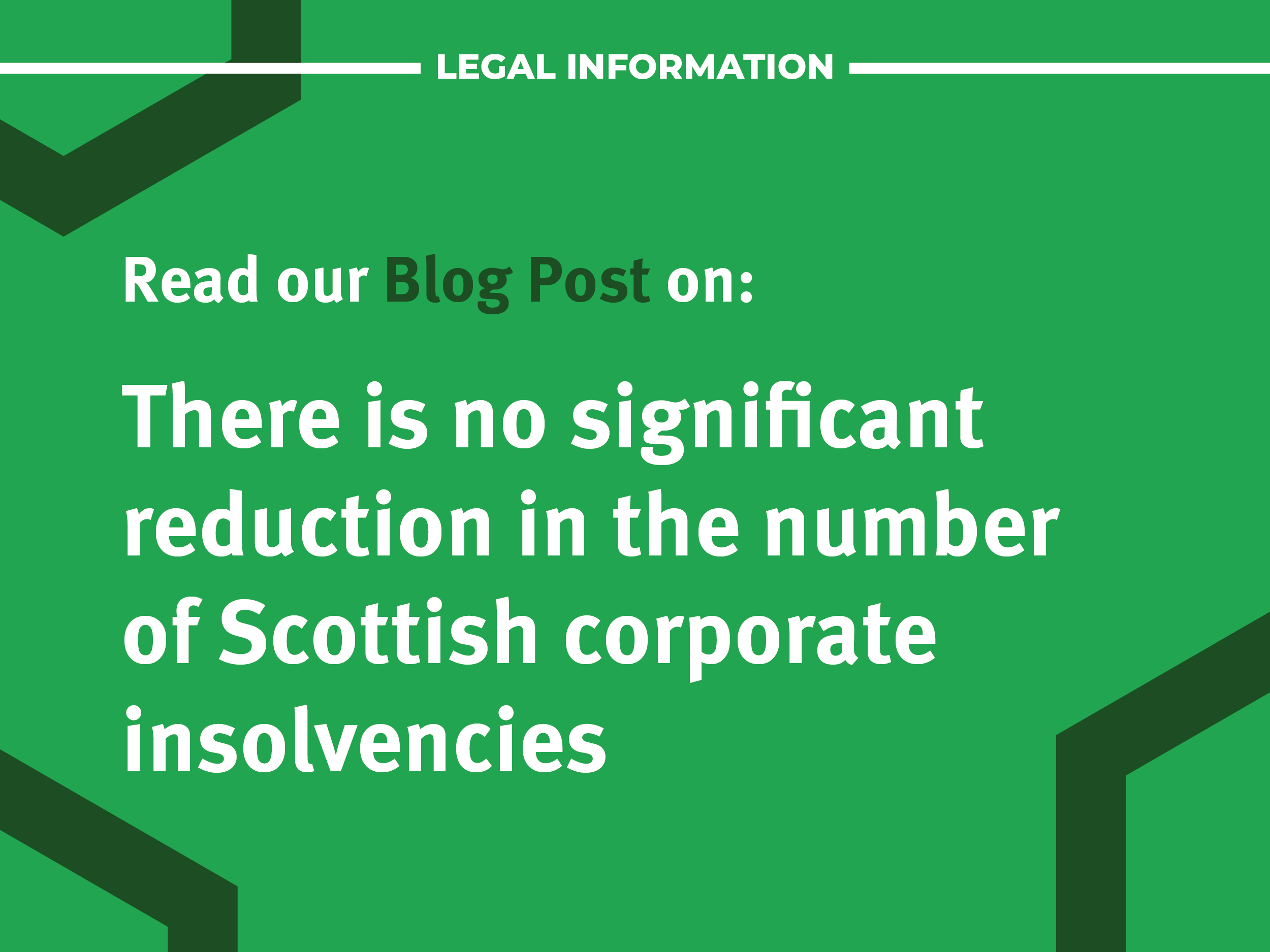
Back in March, the Accountant in Bankruptcy (“AiB”) has published its corporate insolvency data for the fourth quarter of the fiscal year 2021-22, which runs from January to March 2022. The AiB monitors liquidations and receiverships, and their data reveal that the number of companies entering liquidation has nearly doubled during the same quarter in 2020-21, with 240 entities entering liquidation compared to 91 the previous year. It is worth noting that, in the past, most corporate insolvencies were forced liquidations, whereas since the first quarter of 2020-21, the majority have been creditors’ voluntary liquidations, implying that company directors are deciding to wind up based on the company’s inability to pay its debts, rather than creditor pressure.
There have been 854 corporate insolvencies in the current fiscal year, compared to 442 in 2020-21. Due to the Covid-19 pandemic, temporary changes were made that made it more difficult for creditors to pursue debtor company liquidation and financial support was made available from the government, but these changes have now been repealed, and the current increase could be due to the withdrawal of additional support. We believe that corporate insolvencies will continue to rise as a result of the pandemic’s legacy effects, inflationary pressures, and rising energy prices.
What is the process of insolvency?
The process of insolvency is when a company is unable to pay its debts and is declared bankrupt. This can happen if the company has too much debt, is unable to make profits, or has been hit by a major financial crisis. When a company is declared insolvent, its assets are sold off to repay its debts, and it is no longer able to operate as a business.
What are the effects of insolvency?
This is determined by the insolvency solution chosen. If you meet all of the provisions of your insolvency agreement, the debts included in your agreement are generally written off. You may be required to repay your creditors, and your insolvency practitioner may take some of your assets to do so. Your insolvency solution will be documented on your credit report and may be registered on the appropriate insolvency register. It will be more difficult to obtain fresh credit during this period.
Simplicity Legal Solicitors
We counsel creditors and debtors on all types of insolvency at Simplicity Legal. The key, as with all such cases, is to obtain counsel as soon as possible from your Solicitor and an Insolvency Practitioner.
